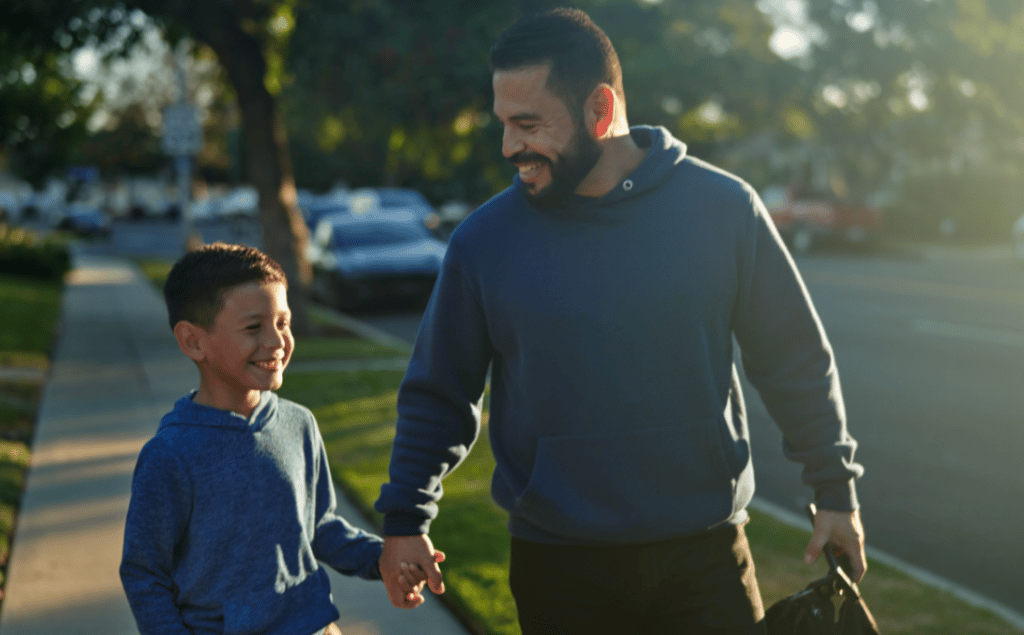
This blog post describes Uber’s policy and notification of rights under Seattle’s App-Based Worker Paid Sick and Safe Time Ordinance (the “Ordinance”).
Uber’s paid sick and safe time policy applies to Uber to the extent that Uber’s business meets the definition of a covered “network company” under the Ordinance and to all qualified delivery people working in Seattle.
Accruing paid sick and safe time in Seattle
Under the Ordinance, you can accrue and use paid sick and safe time (“PSST”) as explained below.
You accrue one day of PSST for every 30 (non-consecutive) days you deliver with Uber. Completing at least one delivery in the city of Seattle counts as one day.
You may carry over 9 days of accrued, unused PSST to the following calendar year. If you carry over unused PSST to the following year, accrual of PSST in the subsequent year shall be in addition to the hours accrued in the previous year and carried over.
If you accrued paid sick leave under Seattle Ordinance 126091, which temporarily provided paid sick leave for gig workers during the Covid-19 emergency, you shall retain all accrued, unused PSST and are entitled to use such PSST as provided under the App-Based Worker Paid Sick and Safe Time Ordinance.
If Uber quits, sells, exchanges, or disposes its business that meets the definition of a “network company,” or such business is otherwise acquired by a successor, you shall retain all accrued, unused PSST and you are entitled to use such PSST as provided in the Ordinance for the successor network company.
Eligibility to use PSST
To be eligible to use your PSST, you must have performed at least 1 delivery in the city of Seattle in the 90 days preceding your request to use PSST. You may use PSST during a deactivation or other status that prevents work for Uber, unless such status is due to a verified allegation of sexual assault perpetrated by you. PSST must be used for an authorized purpose as described below.
Viewing and requesting PSST
You can view your PSST balance (accrued, available, and used days), and view your current average daily compensation rate (which is used to calculate payments of PSST), at any time through the Uber app via Help -> Earnings -> General earnings information -> Washington paid sick time for drivers. Depending on your location, you may also be able to access your PSST information through the Uber app via Earnings -> WA Benefits.
Payment of paid sick and safe time days
PSST days are calculated using your daily average of earnings for each day worked during the 12 months immediately prior to the date your amount of accrued PSST was last calculated. This average is recalculated monthly. Per the Ordinance, beginning January 13, 2024, this average does not include tips earned from customers.
Payment for each claim will be processed within 14 days or on the next regularly scheduled payout date following the requested day(s) of PSST, whichever date is sooner.
Authorized purposes for PSST
You are authorized to use paid sick time for the following reasons:
- For a personal mental or physical illness, injury, or health condition; to accommodate your need for medical diagnosis, care, or treatment of a mental or physical illness, injury, or health condition; or your need for preventive medical care; and
- For care of a family member with a mental or physical illness, injury, or health condition; care of a family member who needs medical diagnosis, care, or treatment of a mental or physical illness, injury, or health condition; or care of a family member who needs preventive medical care.
You are authorized to use paid safe time for the following reasons:
- When Uber has suspended or otherwise discontinued operations by order of a public official, for any health-related reason, to limit exposure to an infectious agent, biological toxin, or hazardous material;
- When Uber has reduced, suspended, or otherwise discontinued operations for any health- or safety-related reason;
- When your family member’s school or place of care has been closed; and
- For any of the following reasons related to domestic violence, sexual assault, or stalking:
- To enable you to seek legal or law enforcement assistance or remedies to ensure the health and safety of yourself or your family or household members, including but not limited to, preparing for, or participating in, any civil or criminal legal proceeding related to or derived from domestic violence, sexual assault, or stalking;
- To enable you to seek treatment by a health care provider for physical or mental injuries caused by domestic violence, sexual assault, or stalking, or to attend to health care treatment for a victim who is your family or household member;
- To enable you to obtain, or assist a family or household member in obtaining, services from a domestic violence shelter, rape crisis center, or other social services program for relief from domestic violence, sexual assault, or stalking;
- To enable you to obtain, or assist a family or household member in obtaining, mental health counseling related to an incident of domestic violence, sexual assault, or stalking, in which you or your family or household member was a victim of domestic violence, sexual assault, or stalking; or
- To enable you to participate in safety planning, temporarily or permanently relocate, or take other actions to increase the safety of yourself or your family or household members from future domestic violence, sexual assault, or stalking.
Confidentiality and Nondisclosure
Except as provided below, Uber will maintain the confidentiality of information provided by you or others in support of your request for PSST, including but not limited to health information of yourself or your family member, the fact that you or your family member is a victim of domestic violence, sexual assault, or stalking, the fact that you requested or obtained PSST under the Ordinance, and any written or oral statement, documentation, record, or corroborating evidence provided by you.
Under the Ordinance, information may be disclosed by Uber only if it is:
- Requested or consented to by you;
- Ordered by a court or administrative agency; or
- Otherwise required by applicable federal or state law.
Separation from work
In accordance with the terms of the Ordinance, if you for whatever reason stop using the Uber app to make deliveries, and commence working again to make deliveries within 12 months:
- Previous work shall be counted for purposes of determining your eligibility to use accrued PSST, except that if you for whatever reason stop using the Uber app to make deliveries, the total time of work used to determine eligibility shall occur within 3 years.
- Previously accrued, unused PSST shall be retained by you and you are entitled to use such PSST, in accordance with the eligibility requirements of the Ordinance.
If you stop using the Uber app to make deliveries and later commence work making deliveries after 12 months of separation from delivery work with Uber, you are not entitled to retain previously accrued PSST and for the purpose of the Ordinance you are considered to have newly commenced work.
Verification request
In the event that you use more than three consecutive days of PSST, Uber may require reasonable verification that you used PSST for an authorized purpose covered by the Ordinance. If Uber requests documentation that accrued PSST hours are being used for a reason that is covered by law, you are not required to provide documentation explaining the nature of the illness, injury, health condition, or preventive care. If Uber requests verification, you have a reasonable time period of 10 calendar days following the first day of your use of PSST to provide verification to Uber.
Retaliation prohibited
You have the right to be protected from retaliation for exercising in good faith the rights protected by the Ordinance. Uber shall not interfere with, restrain, or deny the exercise of, or the attempt to exercise, any right protected under the Ordinance. Uber will not adopt or enforce any policy that counts the use of PSST as an event that may lead or result in discipline or other adverse action against you.
In addition, Uber will not take any adverse action against any person because the person has exercised in good faith the rights protected under the Ordinance. Uber will not communicate to a person exercising rights protected under the Ordinance, directly or indirectly, the willingness of to inform a government worker that the person is not lawfully in the United States, or to report, or to make an implied or express assertion of a willingness to report, suspected citizenship or immigration status of an app-based worker or family member of the app-based worker to a federal, state, or local agency because the app-based worker has exercised a right under the Ordinance.
Support
App-based workers with questions about the Ordinance and/or PSST benefits may reach out to Uber and/or Uber Eats support.
The Seattle Office of Labor Standards (“OLS”) also provides free technical assistance, brochures, posters, and other resources. For more information from OLS, call 206-256-5297 or visit here.
Posted by Uber
Get a ride when you need one
Start earning in your city
Get a ride when you need one
Start earning in your city
Related articles
Most popular

Automating Efficiency of Go programs with Profile-Guided Optimizations

Get your teen 2 free rides and 2 tickets* to see A MINECRAFT MOVIE

Our guidelines for trip requests from minors
